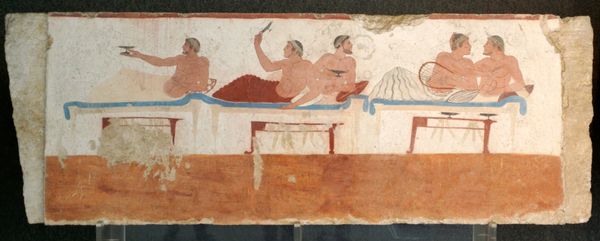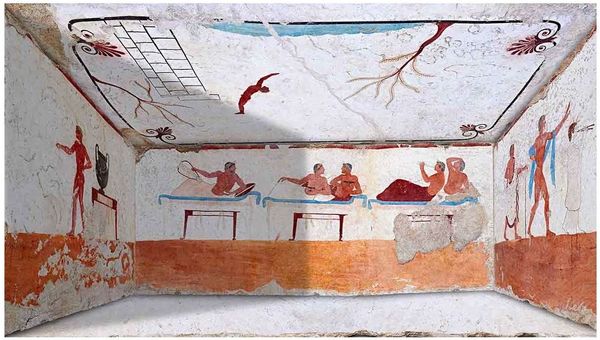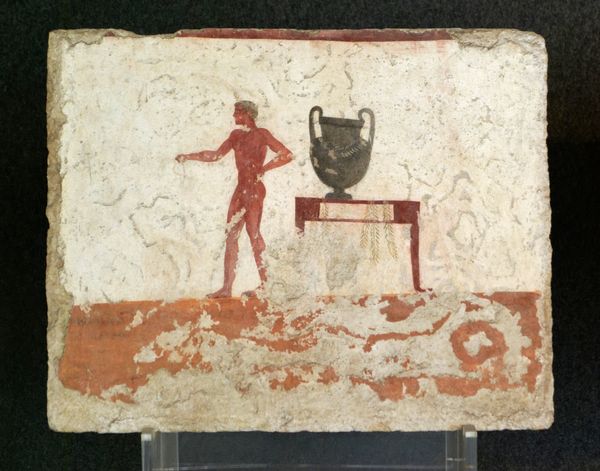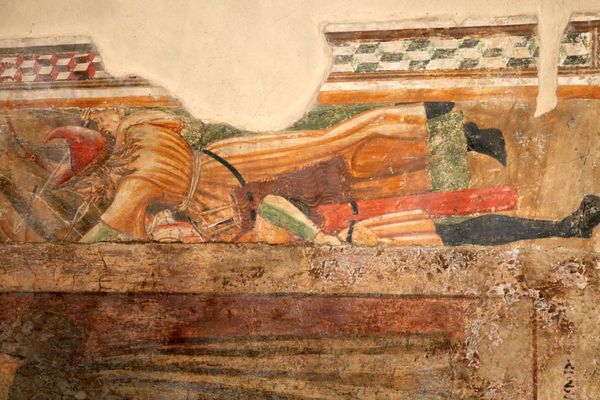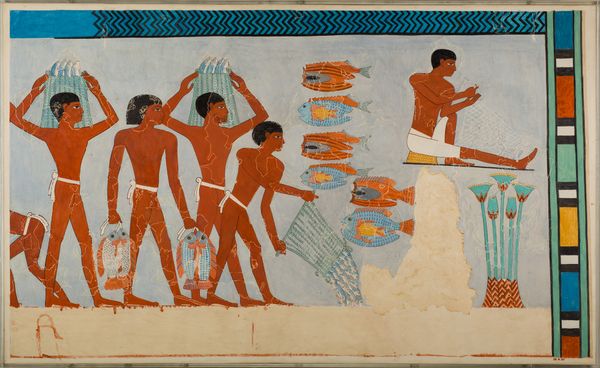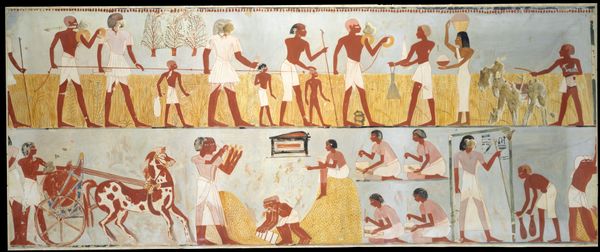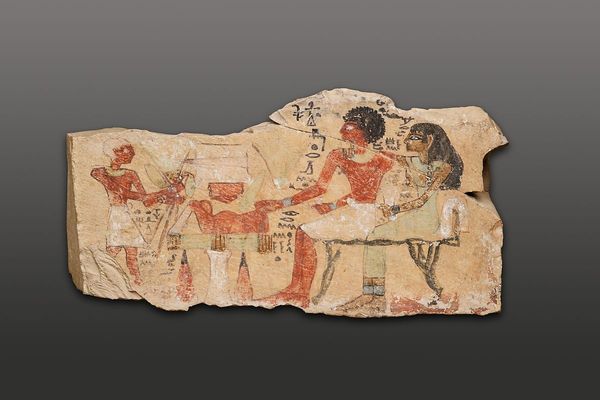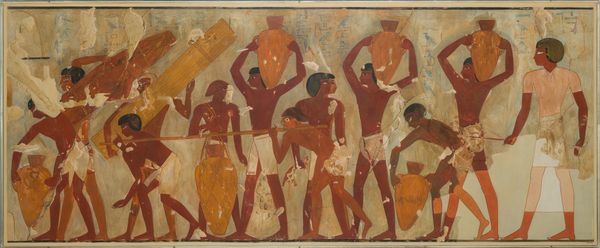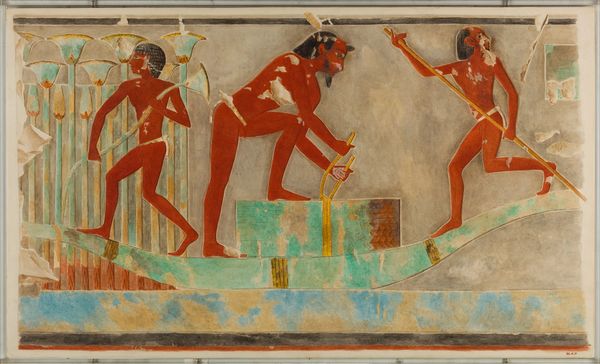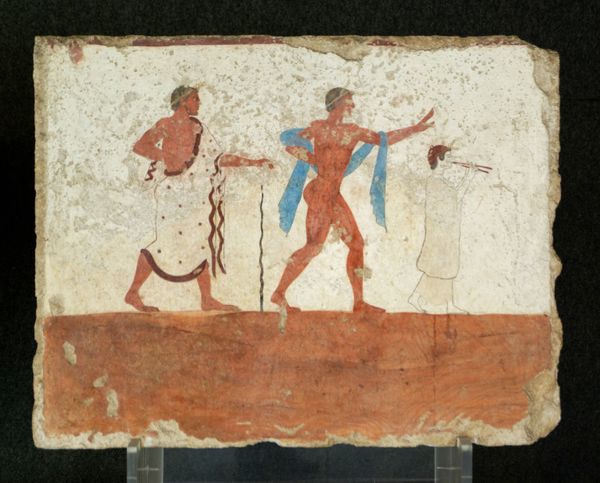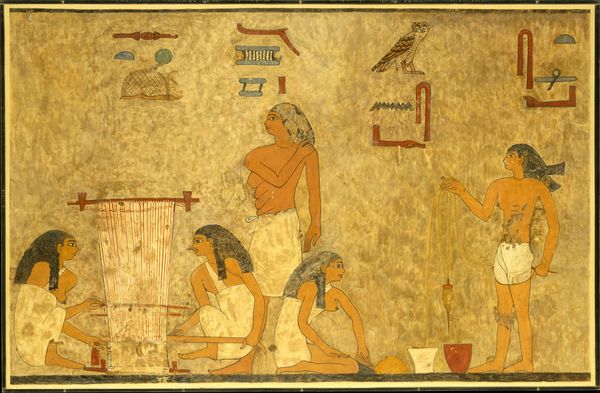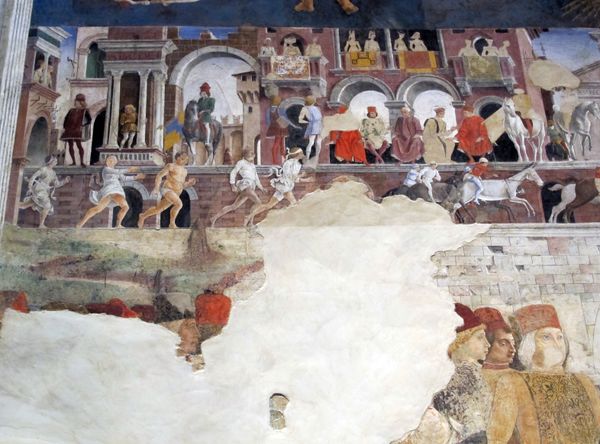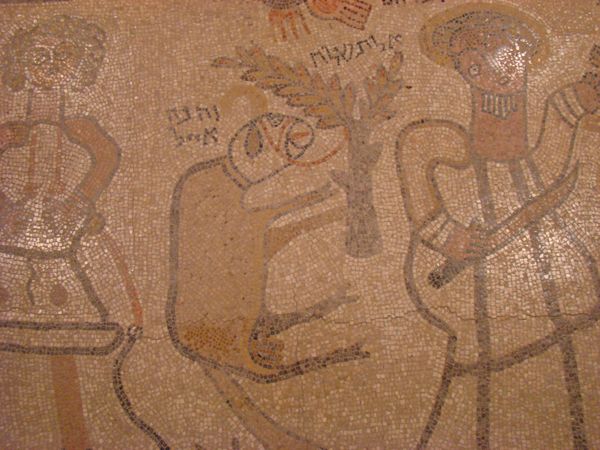
painting, fresco
#
narrative-art
#
painting
#
greek-and-roman-art
#
painted
#
figuration
#
fresco
#
ancient-mediterranean
#
genre-painting
#
history-painting
Copyright: Public domain
This is the South Wall of the Tomb of the Diver, created by an Ancient Greek painter in Paestum, Italy. The fresco is defined by a horizon line, creating two distinct registers that structure the composition: a lower field of warm orange tones contrasts with an upper zone of cool whites and blues. Observe how each figure is placed on a distinct, elevated plane, suggesting a rhythmic sequence that guides the viewer's eye across the scene. These repeated forms, create a sense of order. However, the subjects themselves are in a state of relaxation, their casual poses hinting at leisure, destabilizing any static reading of the painting. Note also the lines that define the couches and figures, capturing movement through simple yet precise outlines. The use of color is minimal, limited to earthen tones and subtle blues, creating a harmonious effect. This understated palette functions to emphasize the human form, drawing attention to posture and gesture. Through its formal elements, the fresco invites us to consider the values and social codes of its time, capturing a fleeting moment of human interaction. Consider the way ancient artworks continue to offer new insights into the human experience.
